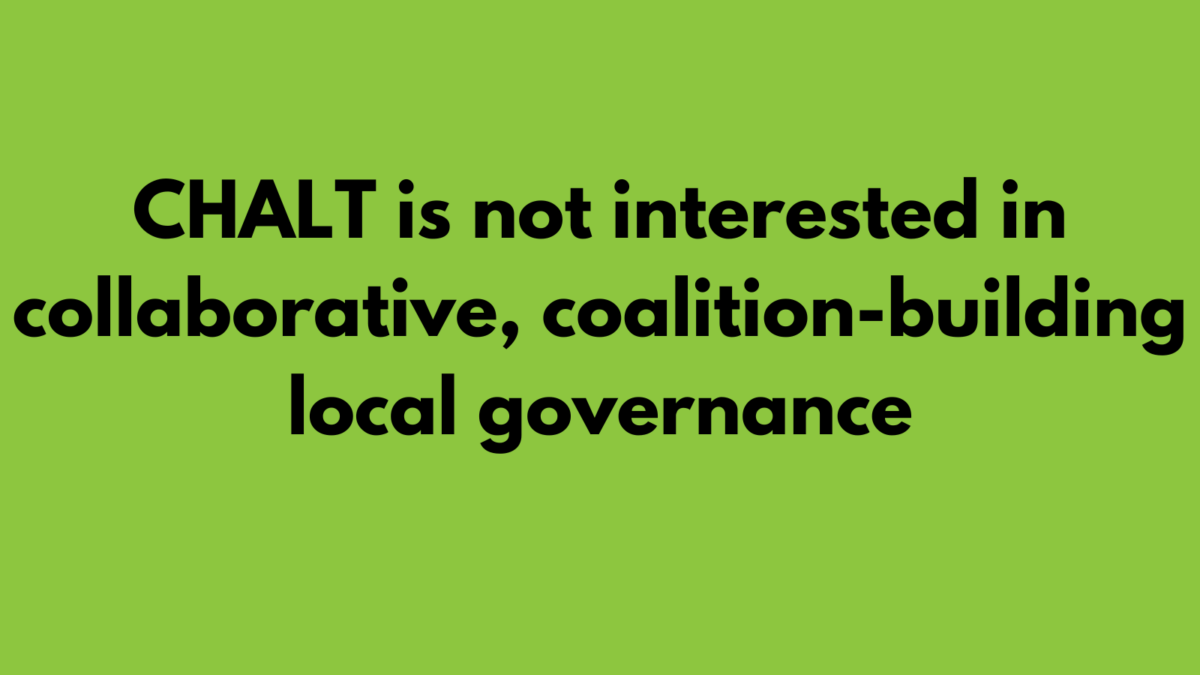This is a pivotal election for Chapel Hill. Beyond the clear policy differences there is a significant experience gap between the candidates. The slate of candidates strongly supported by CHALT (Adam Searing for mayor; Breckany Eckhardt, Elizabeth Sharp, Renuka Soll and David Adams for council) have a paucity of experience with town governance.
This is an interesting development. I’m old enough to remember when CHALT enthusiastically supported two of the other current candidates with arguably the most time in Chapel Hill governance Jess Anderson and Amy Ryan. What happened?
Jess and Amy have significant experience in formal Chapel Hill governance. During their service they have shown the ability to build broad coalitions and to find compromise on tricky situations. They have also developed nuanced perspectives on hot button issues in Chapel Hill (such as development and zoning). Chapel Hill is an expanding community in a fast growing region, and there are very few simple solutions to the challenges the town faces.
I don’t think that CHALT is interested in collaborative, coalition-building local governance. CHALT is a conservative (in the traditional use of the term, i.e resistant to change) and reactionary (proposed changes in zoning have activated their base) group, and they want candidates that are resistant to change and compromise.
But leadership changes people. I don’t think CHALT is interested in supporting candidates that grow and change. I suspect that if any of their current candidates are elected and take governance seriously, they will also change and lose CHALT support, like other electeds that were initially endorsed by CHALT.
Historically, this is fairly common in American politics, especially for candidates that have an initially conservative/reactionary base during times of change (Lyndon Johnson being the textbook example). All that being said, this will be a defining election for Chapel Hill.

